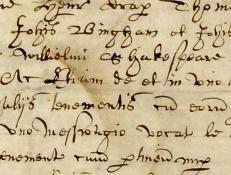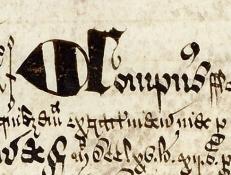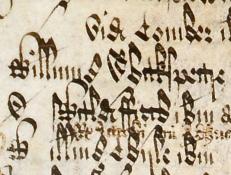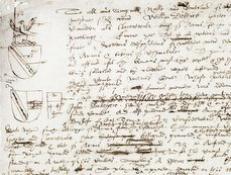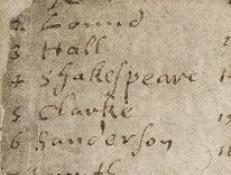To view a sortable list, please visit the Resource
All Documents
November 4, 1598
On October 25, 1598, Richard Quiney wrote both to Shakespeare, asking for his help in securing a loan of £30 and to his friend Abraham Sturley in Stratford-upon-Avon to let him know the request had been made.
ca. November 4, 1598
While in London in the autumn of 1598, Richard Quiney received five letters from his father Adrian. Four are dated (October 20 and 29, November 10 and 18).
October 25, 1598
This is the only known surviving letter written to Shakespeare, but he may never have received it. (No known letters survive written by him.) It is addressed “To my Loveinge good ffrend & contreymann Mr.
February 4, 1598
In this 1598 survey of those storing grain in Stratford-upon-Avon, “W[illia]m Shackesp[ear]e” is listed as holding 10 quarters of malt.
May 16, 1599
The Inquisition Post Mortem of Thomas Brend, shown here, is a near-contemporary witness of the lease for the site of the Globe on Maid Lane, Southwark, and a witness to the recent construction of the “house” itself.
1598- 1599
Lay subsidies were a type of tax based on personal wealth. In London, the collection of subsidies was managed at the local level of ward and parish.
October 6, 1599
Lay subsidies were a type of tax based on personal wealth. In London, the collection of subsidies was managed at the local level of ward and parish.
1599
Like the two draft grants of arms from 1596, this draft exemplification of arms from 1599 is in the handwriting of William Dethick, Garter King of Arms.
ca. 1595- 1600
In 1602, the herald Ralph Brooke challenged 23 coats of arms granted by William Dethick, including the arms originally granted to Shakespeare’s father, John Shakespeare, and now belonging to William Shakespeare.
October 6, 1600
Lay subsidies were a type of tax based on personal wealth. In London, the collection of subsidies was managed at the local level of ward and parish.





